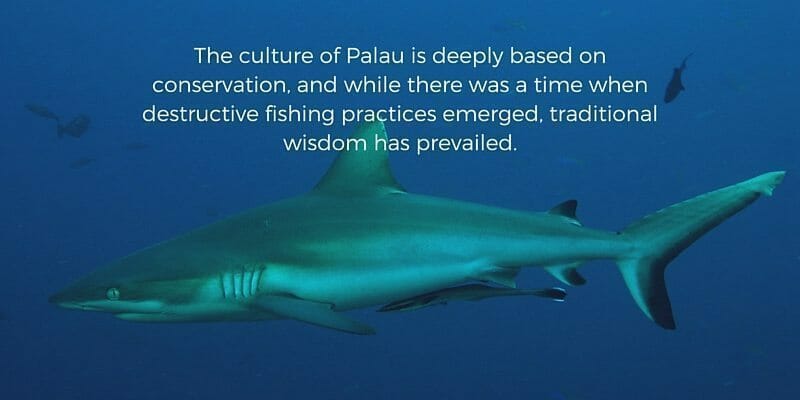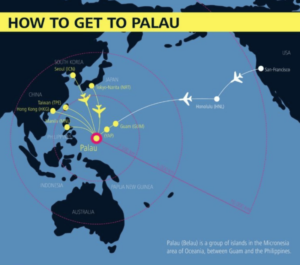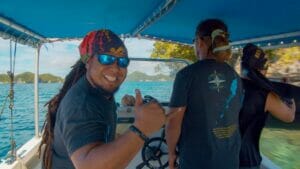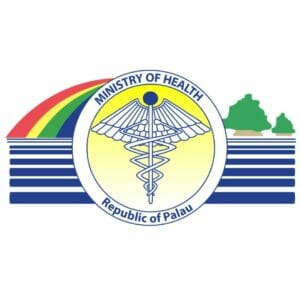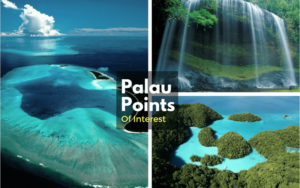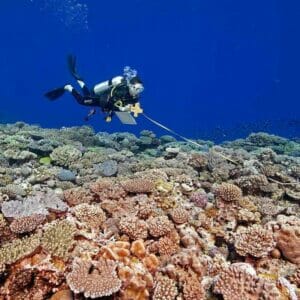The Palau National Marine Sanctuary Act was unanimously passed on 22 October 2015 which will see 80% of the nation’s maritime territory to be a designated Marine Sanctuary.
The act prohibits foreign commercial fishing and oil exploration in the entire EEZ (Exclusive Economic Zone). The 20% not declared a sanctuary is designated a managed area for domestic fishing.
The domestic area will allow sustainability fishing practices to support the island’s population and tourism industry only, no exports are allowed.
When it comes to marine conservation, Palau is embarrassing most of the nations in the world.
In November 2005, Palau’s President, Tommy Remengesau Jr, * issued the Micronesia Challenge to his neighbors. Micronesia has some of the best fishing grounds in the world, and the challenge was to conserve 30 % of near shore coastal waters and 20 % of forest land by 2020.
Accepting the challenge were the Marshall Islands, the Federated States of Micronesia and the U.S. territories of Guam and Northern Mariana Islands. While it still a few years to the deadline, Palau has over 40 protected areas covering 40% of the nearshore coastline and 20% of the land mass.
Palau is a small country of about 21,000 people (some government sources state the number has fallen to 17,000) and has over 250 islands. As we entered this century, the plight of marine species facing extinction was the focus of many conservationist’s concerns and still is.
A primary concern are sharks, with estimated declines between 1985 to 2000 ranging from 50% to 95% depending on the species.
As many as 100 million sharks a year were and are being killed.
The word kill is more appropriate than the word catch, as the shark’s fin was cut off and the shark thrown back overboard to die in most cases. The fins are used in traditional Chinese soup, shark’s fin soup, reportedly to have healing powers. The fins of the sharks are much more valuable than the meat itself and requires much less space.
In 2001, local conservation groups took up the issue of shark finning in Palau.
At times over 70 fishing boats could be seen in port drying the fins. In 2009, then Palau President, Johnson Toribiong, following in his predecessor’s footsteps, went before the United Nations and declared that all the waters of his country’s Exclusive Economic Zone (200 nautical miles from land) were a shark sanctuary.
In his speech, he said: “And we feel that the need to protect the sharks outweighs the need to enjoy a bowl of soup.”
h2>Palau was the first country to declare a national shark sanctuary.
Ten other nations have followed their lead, but they are still the only one to include their entire EEZ. A year later Palau announced it is adding all marine mammals as being protected within the EEZ. The declaration of the sanctuary has tremendously helped restore the shark population in Palau. While the numbers are not at the level before the overfishing numbers, they are encouraging.
Diving with the sharks is one of the major draws that brings divers to Palau. Some studies have suggested that the value of a live shark to eco-tourism to be between one million and two million dollars.
The combination of the protected areas and the shark sanctuary has reinforced Palau’s reputation as the prime dive destination. Pristine reefs, crystal clear waters and a varied of marine life waits for the visiting diver.
The number of dive sites in Palau creates a situation where individual sites are not over crowded.
Divers will find that the dive areas are well regulated and the dive industry strongly protective of its marine life and corals. Divers are required to purchase a permit to dive in the protected areas, and those funds are only spent in the marine conservation efforts.
In early 2013, shortly after resuming the Office of the President, Tommy Remengesau Jr, started discussing the option of creating a new marine sanctuary. In recent years, commercial fishing has reduced the biomass in the countries waters. Hard hit has been tuna, as Palau has the most productive tuna schools in the world.
At February 2014, United Nations sponsored Oceans conference, a working group on Sustainable Development Goals (SDG), President Remengesau was a keynote speaker. During his speech, the President announced the Pacific Small Island Developing States (SIDS) goals as a standalone campaign for ocean conservation.
At the forefront of the SIDS program will be the Palau National Marine Sanctuary Initiative (PNMS). PNMS will be the model that the other countries will adapt to create an integrated regional plan.
The President announced that Palau will extend the protection that the country’s current Shark and Marine Mammals Sanctuary provides to all marine life.
Large scale commercial fishing will be banned in the EEZ of Palau.
A portion of the sanctuary will allow the local fishing industry and recreational/ tourism fishing to continue. These exceptions will be allowed under strict sustainability guidelines and sharks, and marine mammals will still be protected. The exporting of fish and fish products will be banned.
Legislation to create the sanctuary and related requirements will occur over the next few years. The passing of Palau National Marine Sanctuary Act, however, is the key element. Additional legislation will be more administrative in nature.
Also read: Palau Goes Hi-Tec to Help Protect its Huge Marine Sanctuary
The process will take about six years. The main reason for the long timetable is there are commercial fishing permits already issued. The terms of the permits are five years, and it been announced, even before the act’s passage, that no new permits will be issued, and existing ones will not be renewed.
This loss of licensing fees is one of the biggest concerns of implementing the no commercial fishing.
The fees bring in 6 million dollars of revenue to the national government, which is then partially shared with the individual states.
In 2014, the national budget of Palau was about 63 million, showing that the loss will have a significant impact. To compensate the loss, the government is looking at an expansion of its tourism programs. They believe a responsible increase in tourism and implementation of new or revised fees will offset the loss of commercial fishing revenue and help provide funds to protect the marine sanctuary.
Palau is not sitting back waiting for the laws to go into place. The government with international assistance are stepping up efforts to stop illegal fishing.
Please feel free to contact us directly if you would have any questions. We love to hear from you.

